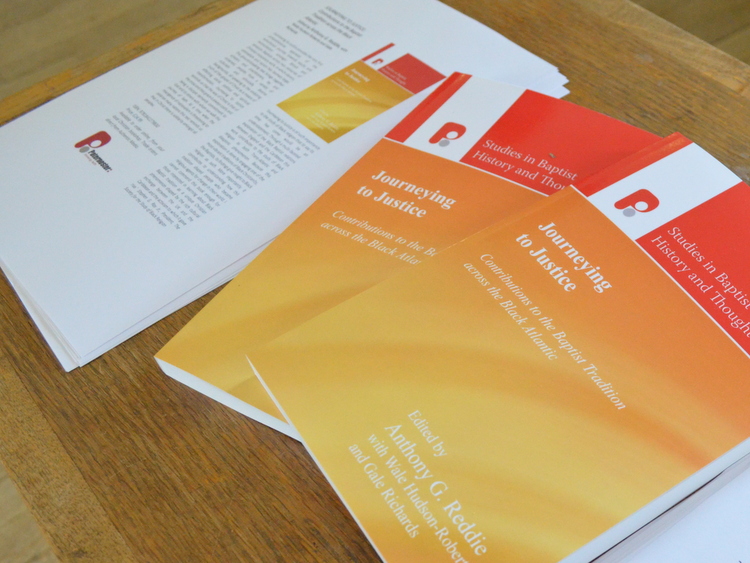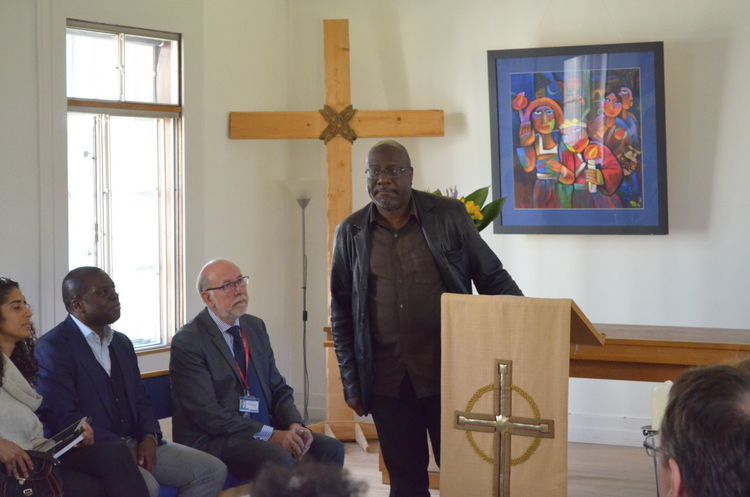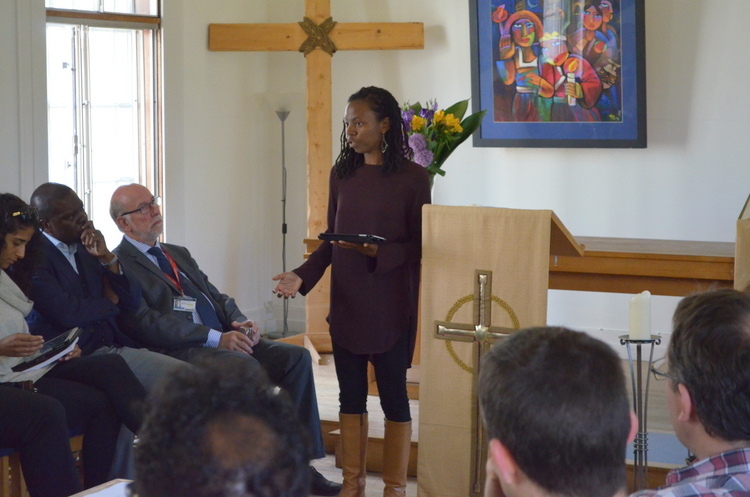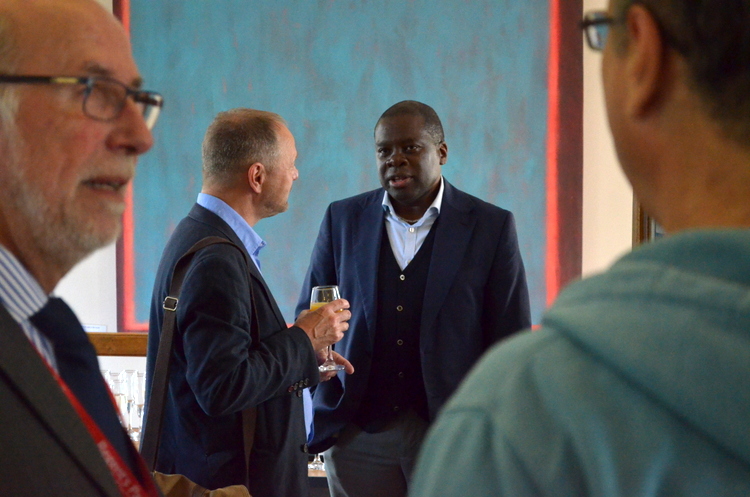'Let us continue our journey to justice'
The first comprehensive appraisal of the journey towards equity and reconciliation among British and Jamaican Baptists has been released

Journeying to Justice – Contribution to the Baptist Tradition across the Black Atlantic is a new book featuring contributions from a variety of scholars and practitioners who together explore Black Baptist relations between England and the Caribbean. It comes as our Union nears the 10th anniversary of its Apology for Slavery.
Journeying to Justice has been edited by scholar Dr Anthony Reddie alongside the Revd Gale Richards, minister of Zion Baptist Church in Cambridge, and the Revd Wale Hudson-Roberts, justice advisor to the Baptist Union.
All three editors and a number of contributors were present for the official launch at Regent’s Park College, Oxford on Tuesday, 6 June.
Opening the launch, the Revd Dr Nick Wood, tutorial fellow in Religion and Culture, commented that the book was a ‘landmark’ on our Union’s road to justice. The fact that the word journeying was used, instead of journey, showed the process was ongoing despite progress being made, he noted.
 Anthony, who grew up in the Methodist tradition, said the very existence of the book was an affirmation of the wider Baptist denomination. ‘No comparable denomination has apologised, and is on a journey to justice,’ he said.
Anthony, who grew up in the Methodist tradition, said the very existence of the book was an affirmation of the wider Baptist denomination. ‘No comparable denomination has apologised, and is on a journey to justice,’ he said.
The most important people, however, were all those who have struggled towards justice, ‘who never got to write, whose names were not recorded in history, who were just seen as human chattel.’
‘There is something in the human spirit that tells us to resist.’ Anthony continued. Though the book offers diverse voices, all speak to the enduring truth of the gospel of Christ as a means of effecting social, political and spiritual transformation.
 Gale authored a chapter which focused on the implementation of The Journey, the strategic recommendations which followed the Apology. She spoke of the changing context: the very structure which had brought about the Apology and the Journey changed as part of the Futures process.
Gale authored a chapter which focused on the implementation of The Journey, the strategic recommendations which followed the Apology. She spoke of the changing context: the very structure which had brought about the Apology and the Journey changed as part of the Futures process.
She highlighted the need for joined up thinking and strategic partnerships in tackling justice issues. Resources are often few, she said, and the reality is that ‘hearts and minds are difficult to penetrate’.
Nevertheless, she spoke of her hopes that the book would help to make others more aware of these realities, which in turn would inspire more people to work towards justice.
A service took place as part of the launch, which included the reading of an extract from Journeying to Justice. Before preaching Wale thanked Regent’s Park College for being a friend on The Journey, and for its ‘wrestling and grappling with these very difficult issues’.
Taking Galatians 3 as his text, he said that Paul’s words of absolute equality under Christ’s rule were comforting.
 However, sadly, ‘this is not played out in society or church.’ People of colour still experience racism.
However, sadly, ‘this is not played out in society or church.’ People of colour still experience racism.
Among the factors that underpin this reality is white privilege. White represents beauty, power, honour and intellect, Wale said. This didn’t make him jealous, but angry when this privilege is misused. And even people of colour have inculcated white theology.
He concluded: ‘Let us continue our journey to justice. We have made strides, but post-Apology we have many strides to make.’
A number of endorsements have been received for Journeying to Justice:
‘This is necessary reading for all concerned with the complexities of both the colonial and postcolonial church and justice.’ Michael N. Jagessar, writer, theologian and intercultural practitioner, United Reformed Church
‘I cannot commend this book enough for those interested in learning about Black Baptist tradition as a unique Christian phenomenon shaped by the rich cultural exchange between the UK and the Caribbean and the activism to which it gave rise.’ Stephen G. Ray Jr., President, The Society for the Study of Black Religion
Journeying to Justice is the latest in a number of resources released this year:
Lest we Forget
A series of five study reflections have been created for small groups to provide further reflection and interpretation on The Apology itself and The Journey that has followed
Moving Stories
Nine studies aimed at helping individuals and groups to reflect theologically about the refugee and migration crisis
Pentecost People
A video-based resource to help churches experience multicultural worship and prayer, to embrace the different cultures within them and to learn hospitality in a new way
Baptist Times, 08/06/2017